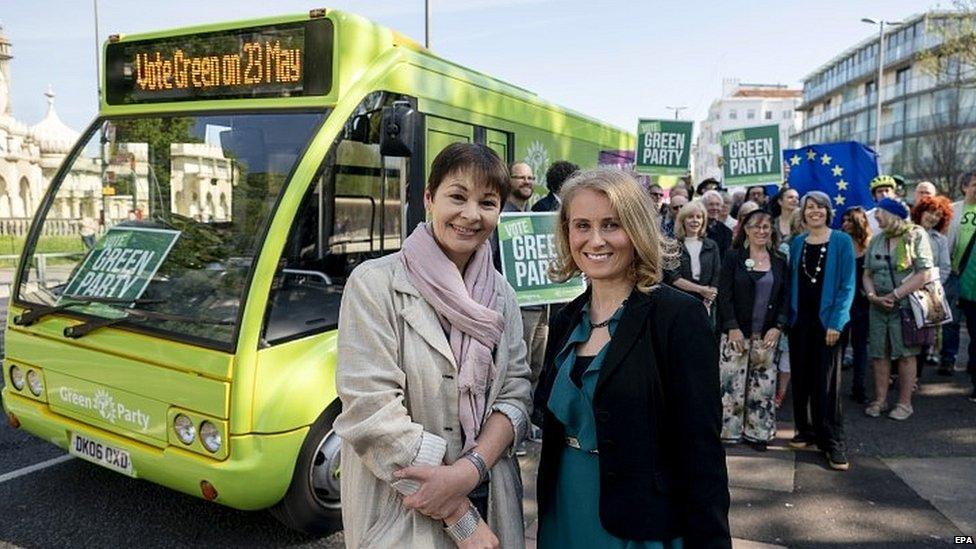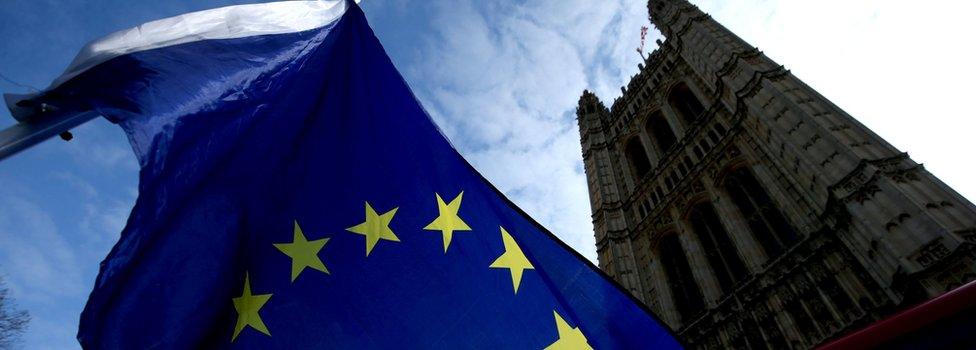European elections 2019: Greens targeting 'squeamish' Labour voters
- Published

The Greens are hoping to do well in London and south of England
Backing continued freedom of movement will be a "vote winner" for the Green Party, Caroline Lucas has said, as it targets Labour voters "squeamish" about Jeremy Corbyn's position on Brexit.
The Green MP said views on immigration were changing, with more appreciation of its economic and social value.
At a campaign event in Bristol, she dismissed concerns the pro-Remain vote would be split in European elections.
What mattered, she said, was the total number of anti-Brexit votes.
"The bottom line is that these elections need to be measured by the total number of votes that go to Remain parties," she said.
The Green Party of England and Wales is one of a number of parties standing on an anti-Brexit platform in Thursday's election.
Calls for the Greens, the Liberal Democrats and Change UK to form a Remain alliance to maximise the anti-Brexit vote came to nothing, with the parties all fielding rival candidates across the country.
The party's former leader and sole MP, who is not standing in the elections, said the Greens were "on a roll" after their strong showing in last month's council polls in England.
She said her party's "passionately pro-European, anti-austerity message" meant it was well placed to capitalise on Labour's equivocation over whether to back another Brexit vote.
'Outward-looking'
Since the European elections were being fought under a proportional voting system, she said people whose natural inclination was to back Labour could be reassured their votes would not be wasted if they supported another party.
"If people vote Green, they will get Green," she said. "For those Labour voters who might be feeling rather squeamish voting for Labour, because its position on Brexit is so unclear, they can vote for the Green Party knowing they are going to get a progressive party."
She suggested her party's call for bold action on climate change and support for continued freedom of movement within Europe would appeal to younger voters particularly.
"I think freedom of movement is a vote winner," she said. "People do want the UK to be outward-looking and more and more evidence has come in recent weeks to suggest if we did stop freedom of movement, the economy would take a massive hit.
"More and more people recognise their friends and families, the people who treat them in the NHS, the people who build their homes, the people who teach their kids - many of them come from other EU countries and make a massive contribution not just to our economy but our communities and society as well."
The Greens have been represented in the European Parliament since 1999 and had three MEPs during the last session.
Their sister party, the Scottish Greens, are fielding six candidates in Scotland in an attempt to win a seat for the first time.

Who is standing in the European elections?

The UK is divided into 12 regions, each represented by between three and 10 MEPs depending on population size.
Seats in England, Scotland and Wales are awarded to parties according to their share of the vote, to candidates on lists drawn up by the parties.
Northern Ireland elects MEPs using a single transferable vote system, with voters able to rank candidates in order of preference.
